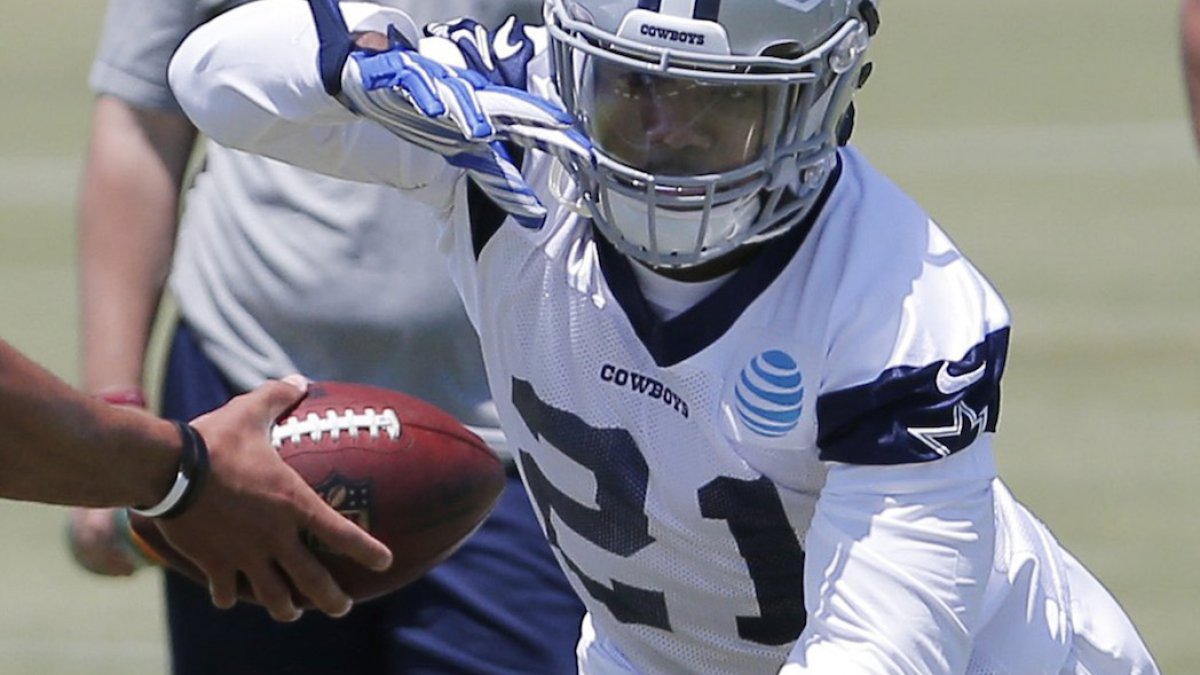Last season, Danny Woodhead of the Chargers finished as fantasy's No. 3 overall running back in PPR leagues, despite totaling just 98 carries and playing on just 50 percent of his team's running back snaps. Tampa Bay’s Doug Martin finished as fantasy’s No. 4 running back, despite amassing just 38 percent of his team's running back targets and playing on just 56 percent of his team's running back snaps. Both were valuable for fantasy owners, yet, also maddeningly inconsistent compared to their season end production.
In PPR (it’s all PPR talk today), Woodhead finished with six RB1 (top-12 in fantasy scoring) weeks, three RB2 (top-24) weeks, and was irrelevant (neither an RB1 or RB2) in 44 percent of his overall weeks. Martin finished with six RB1 weeks, four RB2 weeks, and was irrelevant in 38 percent of his overall weeks. Both were top-five fantasy running backs, but it didn't always feel like it to their fantasy owners.
Atlanta’s Devonta Freeman, meanwhile, (despite missing snaps with injury and not starting a game until Week 3) had 69 percent of his team's running back snaps, 70 percent of his team's running back carries, and 80 percent of his team's running back targets. Freeman not only outscored Woodhead by more than six fantasy points per game, but since being named the starter (and excluding the week he exited early with a concussion), he had only one RB2 week and just one week of fantasy irrelevance.
When comparing Woodhead and Martin to a true every-down workhorse or bell cow, like Freeman, it's no surprise who was more valuable to fantasy owners. Freeman was the second-most-owned player in the Championship round of FFPC leagues while Woodhead was 16th and Martin only 48th, despite being strong ADP values in their own right.
Nailing under-the-radar late-round value plays at the running back position is fun, but do you know what's even more fun? A billion dollars err… nailing the overall No. 1 fantasy running back.
I noticed something intriguing while looking at the top running back fantasy seasons over the past three years. The running backs who posted five of the six top seasons (from 2013 to 2015) all averaged more than 75 percent of their team's running back snaps, 75 percent of the team's running back carries, and 75 percent of team's running back targets. If we drop the baseline down to 66 percent for each category, all of the top nine fantasy seasons for running backs over the prior three seasons satisfied this condition as well. And while that stands to reason — the best backs get the most touches — it’s important that this trend also exists on a weekly basis.
The problem with looking at full-season numbers is twofold; first, fantasy football is a week-to-week game. If a running back finished as a top-five fantasy back at the end of the season, but the majority of his points were scored in a relatively few weeks where you may not have started him, that’s not really valuable to a fantasy owner. Second, looking at full-season numbers also skews for confirmation bias. Essentially, you're not going to find many backs among the top scorers who didn't play in all 16 games.
So, I created a database that includes every running back who played at least one snap in every week of each of the last three seasons. Looking at each of these games and then removing all running backs who played fewer than 25 percent of the team's running back snaps, the following statistics had the highest correlation to fantasy points:
Exclusive content for premium subscribers

WANT TO KEEP READING?
Dominate Fantasy Football & Betting with AI-Powered Data & Tools Trusted By All 32 Teams
Already have a subscription? Log in



 © 2025 PFF - all rights reserved.
© 2025 PFF - all rights reserved.